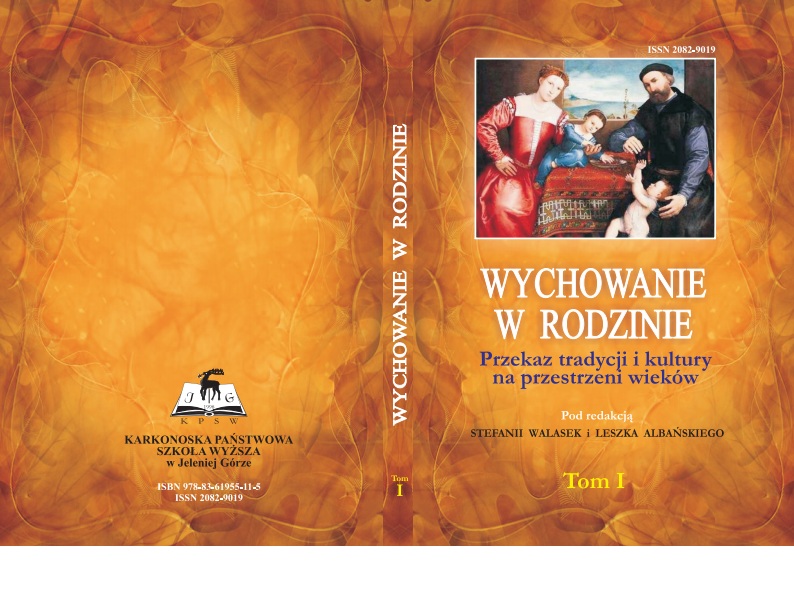Wzorce wychowania dzieci i młodzieży jako element integrujący kulturę życia rodzinnego polskiego ziemiaństwa w dobie zaborów
The models of upbringing of children and youth as agents of cultural integration in the lives of Polish landowners during the Partitions of Poland
Author(s): Aneta BołdyrewSubject(s): Politics / Political Sciences, History, Social Sciences, Sociology, Modern Age, Family and social welfare
Published by: Zakład Historii Edukacji w Instytucie Pedagogiki Uniwersytetu Wrocławskiego
Keywords: children and youth upbringing; polish gentry family rodzina ziemiańska; Poland 19th century
Summary/Abstract: One of the most important tasks of a typical Polish gentry family by the end of the XIX-th century and at the beginning of the XX-th century was to hand down to younger generations patriotic values. To assure the continuity of the nation and to have the guarantee of the futurę freedom became sine qua non condition. It also became one of the main values of the gentry ethos. Gentry accepted the role of depositary of Polish nationality. The defeat of the November Uprising and the reprisals of the partitioning powers led to the radicalisation of attitudes, and of crucial importance became a principle to conflate the national cause with religion, which in tum led to crystallisation of the term „patriotic religion” whose upholder and priest became a woman - „Mother Pole”. Within the whole epoch the education of children was significant. In order to save them from the indoctrination they were taught national history, tradition and literatureat home which stood in the opposition to the teaching officially practiced at school. The further evolution of the model was influenced greatly by the defeat of the January Uprising and the political and socioeconomic transformations in the wake of it. Thebasis of a modem society was to be its young generation. It was their mother who were supposed to look after their health, bringing-up and education, and the postulates to improve the ąuality of parental care became one of the elements of „organie labour”. The new reality of life made it necessary by the end of the XIX-th century to reinterpret the idea of patriotic upbringing which was integrated with morał and hygienic education. In spite of numerous differences conceming the upbringing one can point to many common pattems of education of young generation. The models were not dependent on territorial, political or mental divisions which created so called “awareness of being onesocial body”. Family and social gatherings facilitated the process of unity above theborders of occupation. Many families paid attention to systematic contacts with other families both personal and in written form. There were also popular visits at families’and trips to places of cultural importance. Growing up children travelled between the occupied territories which was an important element of socializing and patriotic education which, on the other hand, was protection against assimilation with the culture of the occupant.
Journal: Wychowanie w Rodzinie
- Issue Year: I/2011
- Issue No: 1
- Page Range: 53-85
- Page Count: 33
- Language: English, Polish

